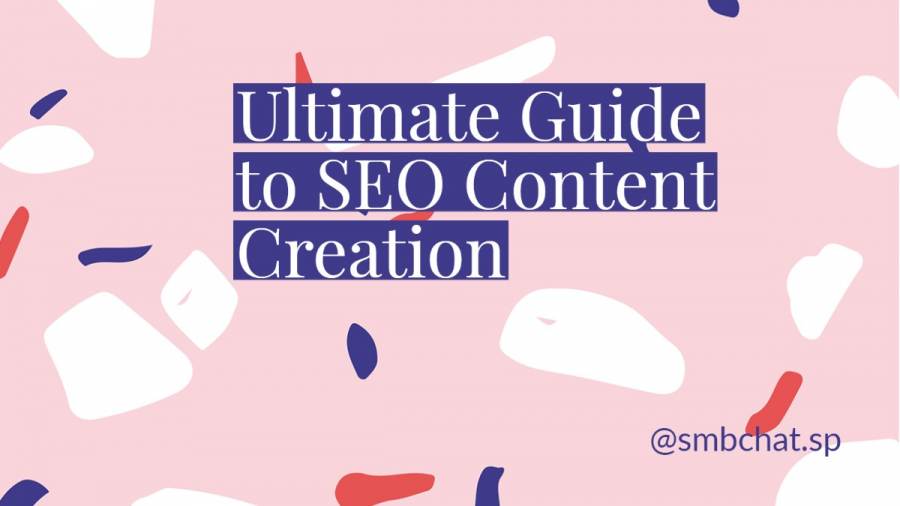Copywriting Vs Content Writing: 5 Key Differences Every Website Owner Needs to Know
You’re planning to hire an SEO writer to take your content marketing to new heights in Google. But do you need a copywriter or a content writer?
Are the two even different?
After all, they’re both writers. Does it really matter?
The answer is YES.
Differences Between Copywriting and Contet Writing
While both copywriting and content writing create texts to meet business goals, each of them has a distinct purpose. Get this distinction right, and you’ll know the right way to go in your hiring spree.
1. Purpose
Copywriting aims at selling your brand to your target audience. Traditionally, a copy helps you persuade a potential buyer and make a sale. You can view it as salesmanship in print (or pixels).
On the contrary, the goal of content writing is to educate, inform, entertain or instruct. The content writer aims to entice readers, engage their sustained attention, and demonstrate your thought-leadership in the industry. The content creation focuses on driving a potential buyer down the road to their final decision.
2. Emotions
Copywriting strives to elicit an emotional response from your website visitors and make them take action immediately, eventually helping you turn traffic into sales. For instance, you may want them to purchase an item, download a document, or register for a newsletter. So your copywriter will strive to spur a sense of urgency and inspire emotional responses.
You see, answering the audience's question of “why this?’ is not enough to win a click on that button. You also need to answer their “why this now?” A professional copywriter will weave scarcity and urgency into your texts to elicit immediate action.
Professor Gerald Zaltman from Harvard University found out that emotion drives purchases in more than 90% of consumers. You see, FOMO (fear of missing out) may compel people to purchase an enticing item before it’s swept off the shelves. Apart from FOMO, copywriting can also invoke pride, security, instant gratification, comfort, and a sense of belonging. And in this era of social media, copywriting is even more potent as people desire new products after seeing their friends with them online.
When it comes to content writing, emotions don’t reign wild that much. Instead, the writers want to create and cement long-term relationships among the target audience. The right piece of content beefs up engagement, builds trust, and positions your brand as a top-of-the-mind solution to readers’ pain points.
3. Length
This is another crucial difference between content writing and copywriting. Copywriters create a short-form copy that intends to turn prospects into customers. Short and punchy texts are impactful if you’re looking to entice the visitors to hit that button that’s screaming for their attention. They’re suitable for the following types of writing:
- Sales emails for email campaigns
- Online and print ads
- Web page content
- Taglines and slogans
- Video scripts
- Catalogs
- Radio or television commercial scripts
- Sales letters
- Social media posts
- Jingle lyrics
- Direct mail letters
- Postcards
- Catalogs
- Video scripts
On the other hand, content writers tend to create long-form content because they focus on entertaining or educating the audience. The words can go up to 2,500 words or beyond, depending on the topic at hand.
Well, you can still educate or entertain your audience using short pieces of content. But you’ll want to dive deeper if you desire to offer a rich value and quench your readers’ thirst.
Here are some types of content that may require you to dive deeper into a topic:
- Blog articles
- Articles
- News articles
- e-books
- print magazines
- newspaper pieces
- magazine features
- podcasts
- product descriptions
- film
- television
- books
- email newsletters
- white papers
Well, areas tend to overlap sometimes, but hopefully, the point is home.
4. Duration of Results
If a copywriter is excellent at their trade, the results will speak for themselves immediately. Open rates, click-through rates, and other metrics can quickly help you differentiate a copy that’s trying from the one that ticks all the boxes.
On the contrary, it’s not easy to measure content in the short term. Powerful content strategies like SEO strategies require time to produce measurable results. Did an SEO person tell you that you’ll begin seeing tremendous results a day after posting that blog post? Mate, they’re selling you snake oil.
When real humans finally start loving your content, Google will follow suit, and your content’s value will have a longer shelf life. Unlike email and ads, articles and blog posts will continue to award you with long-term and powerful results. That’s where patience pays.
5. Traffic
Content writing tends to drives organic traffic to your website. Copywriting then converts this traffic into leads and sales. While overlapping can occur, it’s rare.
Yes, business owners and Search Engine Optimization gurus would desire to reap the best of both worlds: create content that entices organic visitors and turn as many of them as possible into actual buyers or sales leads. But driving organic traffic is what SEO content does best, while selling belongs to sales copy.
Get the Best of Both Worlds From Zoey Writers
While copywriting and content writing can help you meet your digital marketing goals, each of them serve a distinct purpose and primary objective. If you're looking to get the best of both worlds, the best place to start is by adding our competent team of writers to craft words that engage and sell.
















